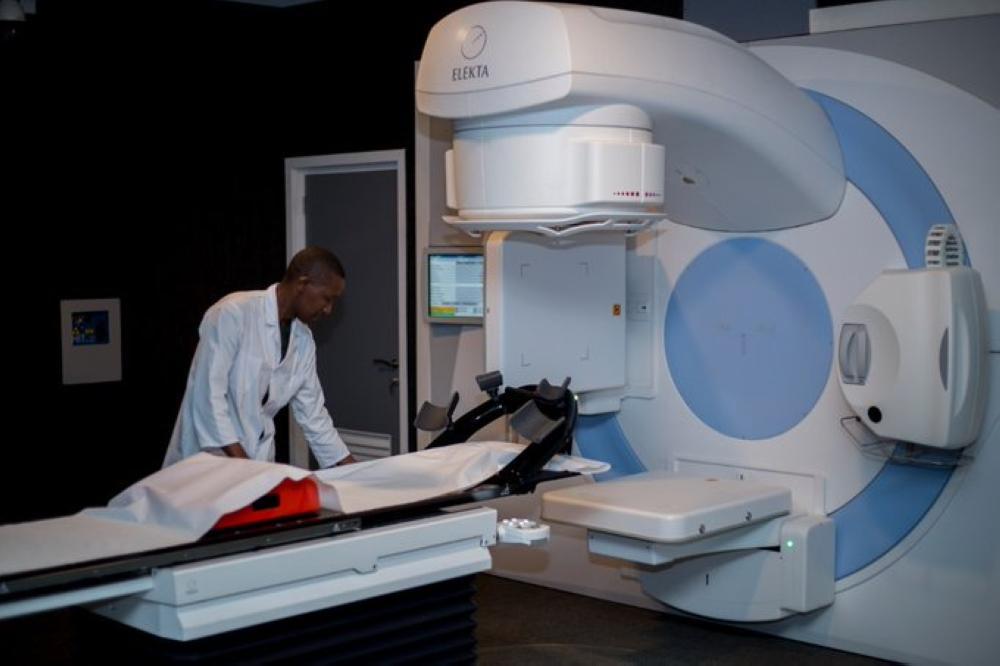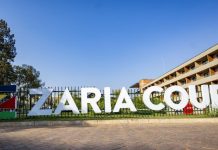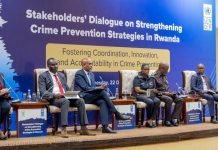Africa-Press – Rwanda. Since 2018, radiotherapy has helped cancer patients in Rwanda receive treatment closer to home. Before then, many had to travel to Uganda or Kenya for care. Today, the therapy is delivered at Rwanda Cancer Centre (RCC) at Rwanda Military Referral and Teaching Hospital in Kanombe, supporting patients with various types of cancer.
Dr. Theoneste Maniragaba, Director of the Cancer Programme at Rwanda Biomedical Centre (RBC), told The New Times that globally, approximately 60 percent of cancer patients require radiotherapy at some point during their treatment journey.
“This may be as a primary treatment, in combination with surgery or chemotherapy, or as part of palliative care to relieve symptoms and improve quality of life,” he said.
Less dependence on referrals to foreign countries
Dr. Maniragaba noted that before 2018, patients had to be referred to neighbouring countries, but its introduction in Rwanda reduced dependence on foreign facilities and improved timely treatment for patients.
Radiotherapy is a localised treatment that targets cancer cells in specific areas of the body. It can shrink tumours before surgery, improve the effectiveness of chemotherapy, and relieve symptoms such as bleeding or pain caused by advanced cancers.
According to Dr. Maniragaba, it is now used for the country’s most common cancers, including cervical, breast, prostate, liver, gastric, and colorectal cancers.
The program was launched through a collaboration between the Ministry of Health, Rwanda Biomedical Centre (RBC), Partners In Health (PIH), and international partners.
As part of this effort, Rwanda installed two linear accelerator machines (LINACs) — advanced equipment used to deliver targeted radiation therapy to cancer patients. The country also trained medical physicists, radiation oncologists, radiotherapists, and support staff to safely operate and maintain the technology, he added.
Affordability and insurance coverage
“Cost has long been a challenge for patients undergoing radiotherapy, a session previously cost around Rwf 6,000, but following the cabinet approval of updated health service tariffs in January, the fee was revised to Rwf13,600. Under the community-based health insurance scheme (Mutuelle de Santé), which covers 90 to 95 percent of Rwandans, patients now pay only about 10 percent of the cost, roughly Rwf1,360 per session,” Dr. Maniragaba explained.
“Previously, patients would pay between Rwf8,000 and Rwf9,000 per session, and a full course of 30 sessions could cost over Rwf270,000. That was unaffordable for many families. The new tariffs make treatment more accessible,” he added.
Chemotherapy will soon be added to the national cancer benefit package, further easing the financial burden on patients.
Capacity and access challenges
He noted that despite the progress, access to radiotherapy is still limited. Rwanda has only one treatment centre in Kigali and two machines. The International Atomic Energy Agency (IAEA) recommends one radiotherapy machine for every one million people. With a population of about 13 million, Rwanda would need at least 13 machines.
“Right now, we are far below the required capacity. One machine should serve around one million people. Having just two machines for the whole country is not enough,” Dr. Maniragaba noted.
He added the waiting period for treatment can stretch to three months. The aim is to reduce that to one month by adding more machines and staff. Each machine can treat about 80 patients per day under normal conditions, but with extended shifts, the number can rise to 120.
“If we had the resources to work around the clock, one machine could handle up to 180 patients daily,” he added.
Plans for expansion
To address the shortage, the Ministry of Health has laid out a five-year plan to expand radiotherapy services. This includes setting up new treatment centres in Butaro in the north and another in the south, with plans to expand to the western and eastern provinces over time, noted.
“For now, patients from across the country must travel to Kigali, which is a challenge. If we succeed in opening centres in the north and south, they will support those people, while Kigali will continue serving the central and eastern regions.”
Rwanda also faces a shortage of specialised staff. Training more medical physicists, radiation oncologists, and technologists is part of the Ministry of Health’s 4×4 strategy to improve care.
Cost of machines
“Expanding radiotherapy capacity is expensive. A single linear accelerator machine costs around $2.5 million, or approximately Rwf 3.6 billion. These machines are very costly, and they require regular maintenance,” Dr. Maniragaba said.
For More News And Analysis About Rwanda Follow Africa-Press






